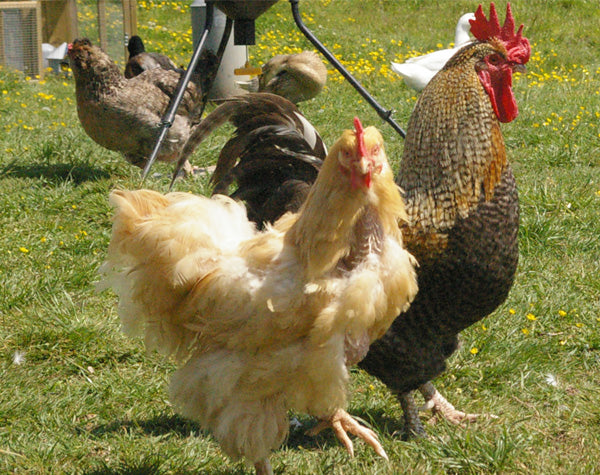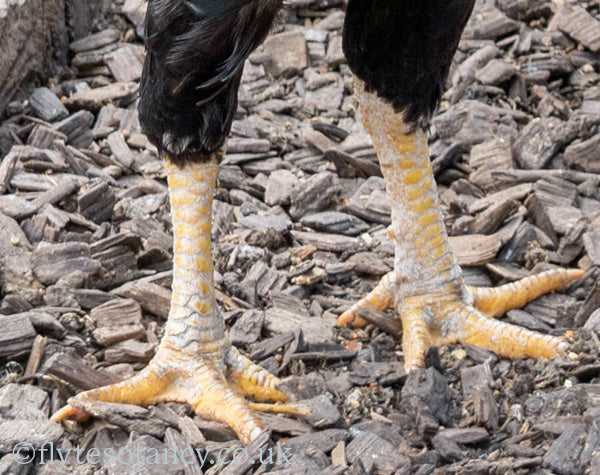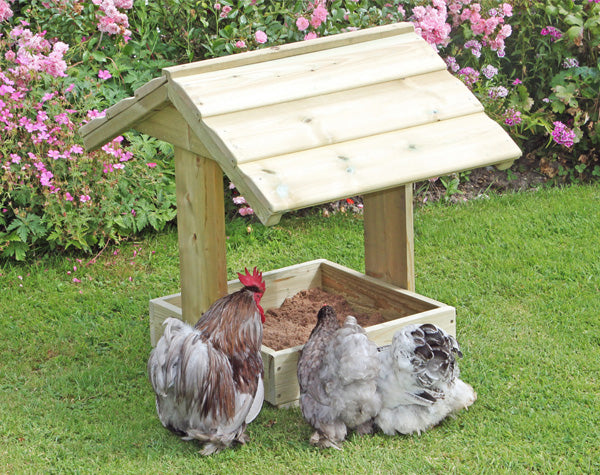5 Reasons for Feather Loss in Chickens
Are you worried that your flock is going bald and will be feeling the cold this winter? Is it mid-summer and they are losing feathers?
In this AskPhill video, Phill guides you through why it might be happening and what you can do (you'll be pleased to know that it doesn't involve knitting a jumper!!)
Phill describes the 5 main reasons that your chickens are losing their feathers and gives you some solutions - and there are descriptions and links below to products mentioned.
1. Are they moulting?
Moulting is the process of shedding and regrowing feathers, which typically occurs in the fall or winter when daylight hours decrease. Chickens moult each year as part of their natural growth cycle.
Chickens need to replace old or damaged feathers, which can become tattered, or even infested with mites or lice over time. It also allows them to prepare for colder weather by growing thicker and warmer feathers.
Several Poultry Tonics are available which are packed full of vitamins and minerals - like Agrivite Poultry Drink Concentrate; the Nettex Vit-Boost Poultry Tonic; then there is Life-Guard Tonic, and Biolink Poultry Tonic - all of these can help them recover quickly.
They do need perhaps some extra protein to help regrow the feathers so for this you can change them to a Growers Pellets or Chick Crumb with higher protein levels - or hang up a pecking block like the Silvermoor Alfa Hanging Block which is compressed alfalfa and full of protein.
During ‘The Moult’, usually Autumn, chickens will temporarily stop laying eggs or produce fewer eggs than usual, as their bodies divert energy and nutrients towards growing new feathers.
Once the moulting process is done, they will resume their normal egg-laying routine.
2. Are they stressed?
When chickens experience stress, they may start pecking other bird’s feathers, or display aggressive behaviour towards other birds. This can lead to feather loss or injury, which can further increase stress levels and exacerbate the problem.
Stressful events that can cause feather loss in chickens may include overcrowding, changes in their environment, such as the introduction of new birds, or a change to their routine or diet.

To prevent feather loss due to stress, it's important to ensure that chickens have enough space to move around and that they have adlib access to food and water.
Providing a stimulating environment with perches, perhaps a straw bale or tree branch in their run, and other enrichments can also help to reduce stress levels.
For a purpose-made entertainment apparatus, see our Jungle Gym.
3. Is it aggressive feather pecking?
Chickens will naturally establish a social hierarchy within their flock, with dominant birds at the top and submissive birds at the bottom. Aggression can occur when a chicken tries to establish or maintain its position in the pecking order.

Adding a cockerel to your flock can often prevent a hen pecking order being established as he 'keeps all the hens in order'. It is not possible for everyone to have a cockerel with their hens - they don't lay eggs and they can be quite noisy.
It can also occur if there is overcrowding and they are vying for space, or if there are not enough nest boxes for them to lay in and they have to compete for the space.
A lack of protein in the diet can equally result in feather pecking and you will see them eating the feathers. Composed primarily of protein, feathers can seem like a tasty dietary source to a chicken. A change of diet to a higher protein feed can often resolve this.
If a bird becomes unwell or injured this may make the other birds turn into mini dinosaurs. If a hen has open wounds that are bleeding, the other birds will be attracted to the blood and peck at it relentlessly.
4. Is it over-mating by the Cockerel?
A cockerel can cause feather loss in hens during mating because he will often grab the hen by the back of her neck and hold her down while mating.

This can sometimes cause feathers to become dislodged or pulled out. It can be especially problematic if the hen is repeatedly mated by the same cockerel as the feather loss gets worse over time. Putting a protective Poultry Saddle on the hens normally solves this problem.
However, it's not normally a concern as feathers will typically regrow over time, and hens that have access to a dust bath may be better equipped to maintain their feather health.
If you notice other signs of stress or injury in your hens, it may be a good idea to separate them from the cockerel for a while or to provide refuges where they can escape his amorous intent.
5. Do they have lice or mites?
Lice or mite infestations can result in feather loss too. These parasites can cause skin irritation and discomfort, leading to scratching and pecking at feathers.

They can also cause other health problems in chickens, such as anaemia, which can further exacerbate the problem.
You may see excessive scratching or preening, or visible irritation or inflammation on the skin.
Keeping the hens dusted for mites and good hen house hygiene will help to eliminate the parasites and promote healthy feather growth.
Further reading ...
For an even more in-depth description of this very common chicken keeping dilemma visit our Information Centre where you can find our article on Feather Pecking in Chickens.



